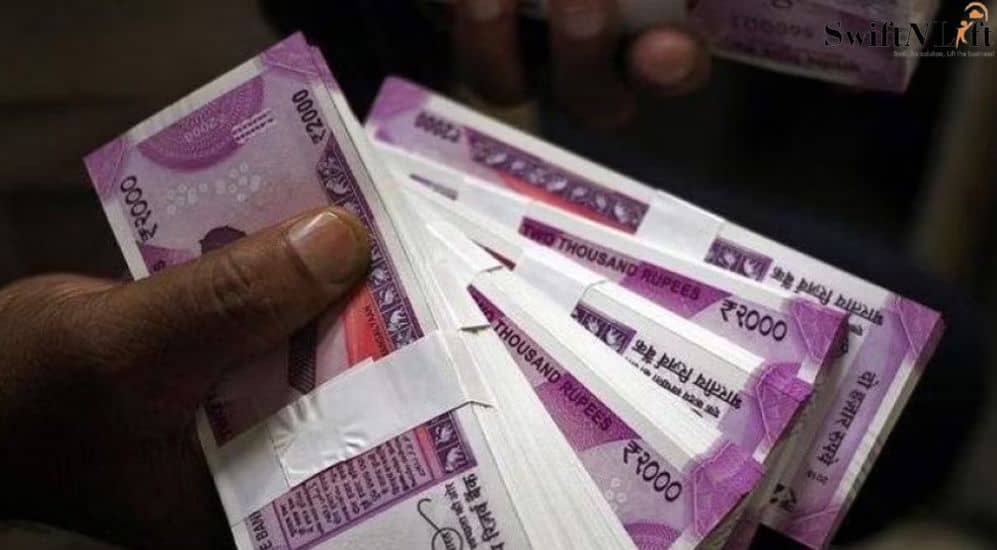
Supreme Court Rejects Plea against Exchange of Rs 2,000 Notes Without ID Proof: Upholding Financial Inclusion and Convenience
In a recent decision that has significant implications for financial inclusion and convenience, the Supreme Court of India has rejected a plea challenging the exchange of Rs 2,000 currency notes without the requirement of presenting valid identification proof. The apex court’s ruling, which emphasizes the importance of striking a balance between security measures and the ease of conducting day-to-day financial transactions, has garnered both praise and criticism. This article aims to delve deeper into the reasoning behind the Supreme Court’s decision and explore the potential impact on various stakeholders.
In 2016, the Indian government introduced the Rs 2,000 currency note as part of its demonetization efforts, which aimed to curb corruption, black money, and counterfeit currency. However, concerns were raised about the ease with which these high-value notes could be used for illegal activities. As a result, the Reserve Bank of India (RBI) initially imposed restrictions on the exchange of Rs 2,000 notes, requiring individuals to present valid identification proof to prevent misuse.
The recent Supreme Court decision to reject the plea against the exchange of Rs 2,000 notes without ID proof reflects a careful examination of the issues at hand. The court considered the potential hardships faced by individuals, especially those from marginalized sections of society, who may not have easy access to valid identification documents. Additionally, the court recognized that the existing banking infrastructure, particularly in rural areas, may not always be equipped to handle the verification process efficiently.
The Supreme Court’s ruling aligns with the government’s broader agenda of promoting financial inclusion, ensuring that individuals, regardless of their socioeconomic status, can participate in the formal banking system. Requiring identification proof for every transaction, particularly in the case of lower denomination notes, could create barriers for those without the necessary documents. This would disproportionately affect marginalized communities and hinder their access to essential financial services.
Moreover, the decision recognizes the convenience aspect of exchanging Rs 2,000 notes. In a country where cash transactions still dominate, especially in rural areas, the availability of higher denomination currency notes facilitates easier and more efficient transactions. Restricting the exchange process with stringent identification requirements could disrupt the flow of commerce and inconvenience a significant portion of the population.
While concerns about security and the potential misuse of high-value currency notes are valid, the Supreme Court’s decision highlights the need to strike a balance between security measures and the practicalities of everyday life. India’s vast population and diverse socio-economic landscape present unique challenges when implementing stringent identification requirements. The ruling acknowledges the importance of addressing security concerns without unduly burdening the average citizen.
It is important to note that the Supreme Court’s decision does not mean a complete disregard for security. It is expected that other safeguards will be put in place to deter illicit activities. The banking system and law enforcement agencies must work in tandem to implement robust mechanisms to detect and prevent money laundering, counterfeiting, and other criminal activities. Strengthening surveillance and intelligence networks can enhance the security landscape without disproportionately affecting the general public.
In recent years, India has witnessed a significant push towards digital transactions and the adoption of cashless payment methods. The government’s emphasis on digital inclusion, supported by initiatives such as the Unified Payments Interface (UPI) and Aadhaar-enabled payment systems, has the potential to revolutionize the financial landscape. Encouraging digital transactions not only enhances convenience but also provides a secure and traceable means of conducting financial activities.
The Supreme Court’s rejection of the plea against the exchange of Rs 2,000 notes without ID proof reflects a pragmatic approach towards financial inclusion and convenience. The ruling acknowledges the challenges faced by marginalized communities in obtaining identification documents and highlights the importance of a balanced approach to security. While concerns about illicit activities associated with high-value currency notes are valid, alternative safeguards can be implemented to address these concerns without impeding the accessibility and efficiency of financial transactions. Moreover, the ongoing digital transformation in India presents an opportunity to enhance security while promoting a more inclusive and convenient financial ecosystem.

